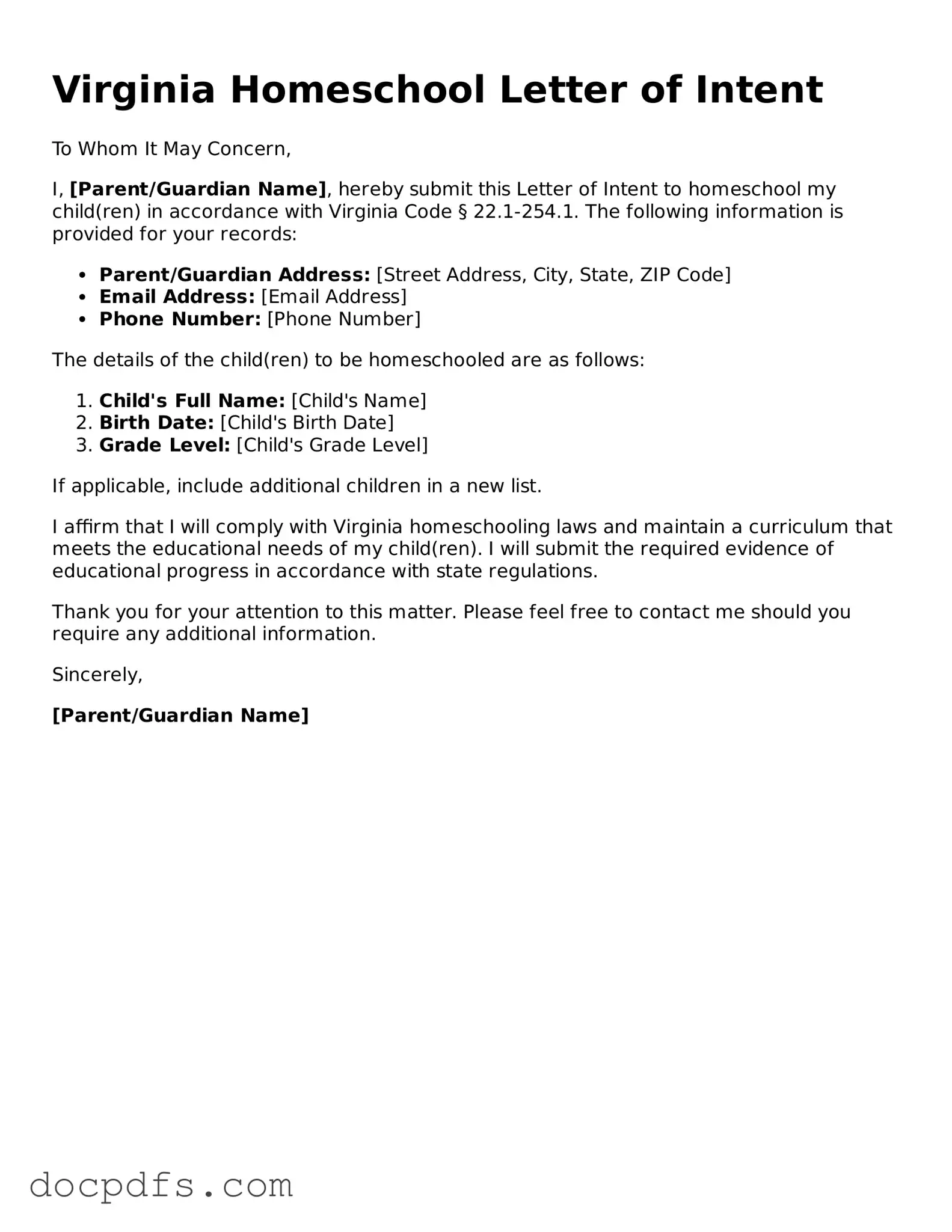Free Virginia Homeschool Letter of Intent Form
The Virginia Homeschool Letter of Intent is a crucial document that parents must submit to officially notify their local school division of their intention to homeschool their child. This form serves as the first step in establishing a homeschooling program, ensuring compliance with state regulations. Understanding its importance and how to complete it can pave the way for a successful homeschooling experience.
Open Homeschool Letter of Intent Editor Now

Free Virginia Homeschool Letter of Intent Form
Open Homeschool Letter of Intent Editor Now

Open Homeschool Letter of Intent Editor Now
or
⇓ Homeschool Letter of Intent
Finish this form the fast way
Complete Homeschool Letter of Intent online with a smooth editing experience.